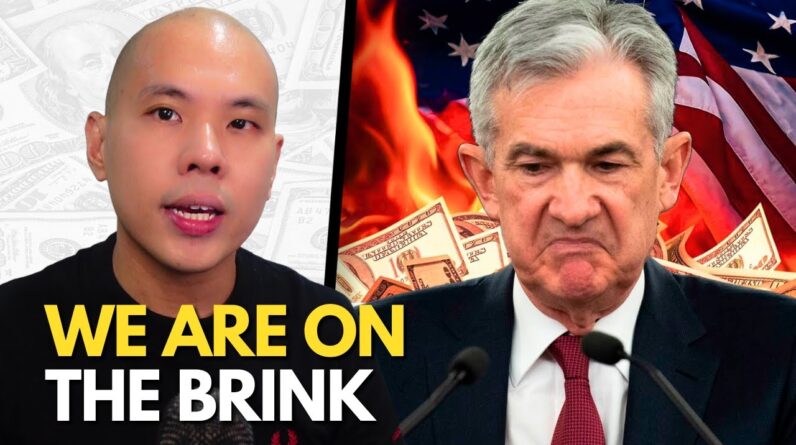I, as a passionate observer of economic trends, am excited to delve into the potential economic earthquakes that could reshape our world in the year 2024. In this blog post, I will explore the five groundbreaking developments that hold the power to revolutionize everything we know about finance and business. Join me as we embark on a thrilling journey, analyzing the seismic shifts that may shape our future. Brace yourself, because the economic landscape is about to experience tremors like never before.
Introduction
In the year 2024, the global economic and geopolitical landscape is expected to undergo major transformations that could potentially reshape the world as we know it. These seismic shifts, often referred to as economic earthquakes, have the potential to revolutionize everything from finance to international relations. In this article, I will delve into five key economic earthquakes that are predicted to take place in 2024 and discuss their potential implications.
1. The Rise of BRICS and New Members Joining
One of the significant developments expected in 2024 is the expansion of BRICS (Brazil, Russia, India, China, and South Africa) and the inclusion of new member nations. The BRICS countries have demonstrated remarkable economic growth in recent years, challenging the dominance of Western economies. With new members joining, this bloc could become an even more influential force in the global economic arena. This earthquake could shift the power dynamics and reshape international trade and investments.
2. Ukraine’s Funding Drying Up
The ongoing conflict in Ukraine has been fueled by external support, particularly from the United States. However, in 2024, there are chances that the US may grow weary of providing continuous financial assistance. If this happens, Ukraine’s funding could dry up, leading to significant challenges for the country’s economy and stability. This earthquake could have far-reaching consequences for the region and impact geopolitical relations.
3. Russia’s Resilience to Sanctions
Despite facing economic sanctions from the West, Russia has managed to sustain its revenues and maintain a significant presence on the global stage. These sanctions have not had a significant impact on its finances, allowing Russia to continue funding conflicts such as the war in Ukraine. This economic earthquake showcases the resilience of Russia’s economy and its ability to navigate through international pressures.
4. China’s Game of De-Dollarization
China has been playing a strategic game of de-dollarization, gradually reducing its reliance on the US dollar in international trade and investments. This earthquake could potentially challenge the US dollar’s status as the dominant global reserve currency. China’s efforts to promote its currency, the yuan, for international transactions could have significant implications for the global economic system, potentially reshaping the balance of power.
5. Shocking Effects of Fed’s Rate Cuts
The actions of the US Federal Reserve, particularly its rate cuts, can send shockwaves throughout the global economy. In 2024, the effects of these rate cuts could be particularly pronounced. While intended to stimulate domestic economic growth, they could inadvertently cause volatility in global financial markets, leading to economic earthquakes. This unpredictability and interconnectedness of economies could pose major risks to global stability.
Conclusion
As we head towards 2024, the world stands on the brink of major economic earthquakes that have the potential to revolutionize everything. The rise of BRICS, the funding challenges faced by Ukraine, Russia’s resilience to sanctions, China’s de-dollarization game, and the shocking effects of the Fed’s rate cuts are all factors contributing to a high level of uncertainty. These seismic shifts are indicative of a multi-polar world order, where power and influence are distributed across multiple nations rather than concentrated in a few. In such a dynamic environment, it is crucial for individuals, businesses, and governments to adapt and stay informed about these economic earthquakes to navigate the changes successfully.
FAQs
-
What does BRICS stand for?
- BRICS stands for Brazil, Russia, India, China, and South Africa, a group of emerging economies.
-
Why is Ukraine’s funding important?
- Ukraine relies on external funding to support its economy and maintain stability amid ongoing conflicts.
-
How has Russia managed to sustain its revenues despite sanctions?
- Russia has implemented measures to mitigate the impact of sanctions and diversify its economy.
-
Why is China promoting its currency for international transactions?
- China aims to reduce its dependence on the US dollar and assert its influence in the global economic system.
-
What are the potential effects of the Fed’s rate cuts?
- The rate cuts can lead to increased volatility in global financial markets and pose risks to global stability.










